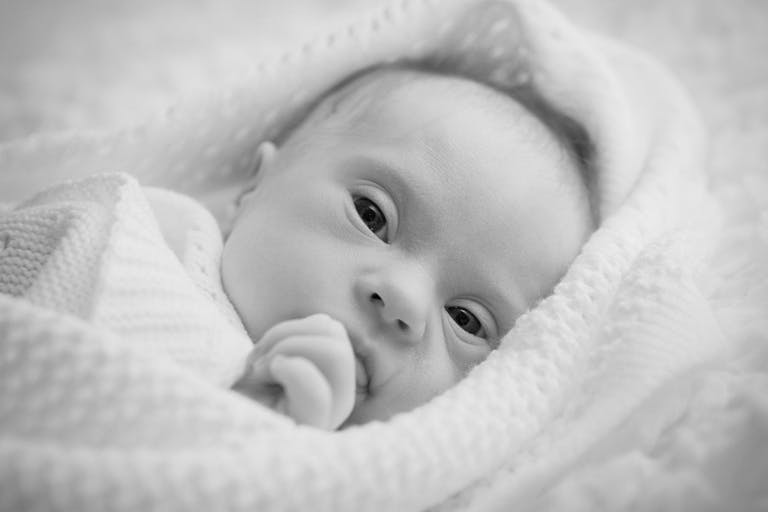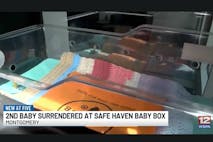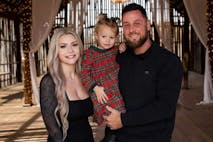
Details shrouded in secrecy as third woman in a month is injured at Rhode Island Planned Parenthood
Bridget Sielicki
·
Human Interest·By Nancy Flanders
National Siblings Day ad highlights how we should view people with Down syndrome
For National Siblings Day in April, the Special Olympics revealed an ad that has been viewed over nine million times, and it likely brought tears to the eyes of everyone who watched it.
Starting with the birth of twin boys, the ad shows a happy couple welcoming their sons into the world. They are excited to hold and kiss their newborns.
As the boys grow together, viewers don’t see the boys’ faces, only their accomplishments. They crawl down the hallway together towards their mother. Their father measures their growth on the wall. They run on the track. They lift weights. Then, they are teens, each running his own race, and you see their faces over the years and realize that one brother has Down syndrome.
As each of them finishes his own race with 4.36 on the clock, the advertisement ends with an embrace between the brothers and the tagline:
Born 4.36 seconds apart. It’s the only difference between us.
While each person is unique in his or her own way, what this ad aims to prove is that we are all more alike than we are different. These brothers see themselves as equal. Neither one’s life is more or less valuable than the other. Neither’s accomplisments are more important. Neither one of them thinks of himself as anyone other than who he is, and neither should we.
The sad truth is that we need ads like these. Down syndrome has become such an unacceptable “difference” for a person to be born with that we, as a society, deem it acceptable to end the lives of those prenatally diagnosed with the condition. And in some places, it isn’t just acceptable, it’s expected.
In the United States, 67 percent of children diagnosed with Down syndrome prenatally are killed through abortion. In Britain, that number is 90 percent, and in Iceland, every child diagnosed prenatally with Down syndrome is killed.
“There hasn’t been a baby with Down Syndrome born in Iceland in the past five years,” explained Dr. Peter McParland, an obstetrician from the National Maternity Hospital.
Article continues below
Dear Reader,
In 2026, Live Action is heading straight where the battle is fiercest: college campuses.
We have a bold initiative to establish 100 Live Action campus chapters within the next year, and your partnership will make it a success!
Your support today will help train and equip young leaders, bring Live Action’s educational content into academic environments, host on-campus events and debates, and empower students to challenge the pro-abortion status quo with truth and compassion.
Invest in pro-life grassroots outreach and cultural formation with your DOUBLED year-end gift!
Denmark is expected to be completely “free” of Down syndrome by 2030.
Meanwhile, the parents who choose life for their children with Down syndrome, and the doctors who support them, offer an insight into life with the condition that doctors who push abortion don’t.
“People with Down syndrome are achieving previously unimagined success, thanks in part to advances in medical care and innovation,” said Dr. Brian Skotko, who runs the Down syndrome clinic at Massachusetts General Hospital. “However, I think that most of the remaining barriers come not from medical limitations but from social ones. Until our schools, communities and workplaces become fully inclusive, our work is not complete.”
Claire Farrington was shocked and devastated when she learned her son had Down syndrome. But as soon as she brought baby Theo home, all that changed. Though it was the most difficult time in her life, Farrington wants other mothers to know that raising a child with Down syndrome is not much different than raising any other child. She worries that people with Down syndrome will soon become extinct.
“I think we’re heading into a dangerous world of eugenics and why should we decide who gets to be born?” she explained. “[…] nobody knows what their baby’s going to be like until they are born. And Andy [her partner] said to me, you know, ‘Don’t write him off, he’s not his diagnosis.'”
And people with Down syndrome are happy to be alive, proving that abortion is not the answer. According to one study, 99 percent of adults with Down syndrome reported being happy with their lives, and 97 percent said they like who they are.
The recent Special Olympics’ ad displays this joy for life. It’s something that those who have never experienced life with a health condition for themselves or anyone close to them, may not be able to understand, but life is always worth living.
Joy can always be found, even when you think you have entered the worst time of your life in facing your child’s diagnosis.
Live Action News is pro-life news and commentary from a pro-life perspective.
Contact editor@liveaction.org for questions, corrections, or if you are seeking permission to reprint any Live Action News content.
Guest Articles: To submit a guest article to Live Action News, email editor@liveaction.org with an attached Word document of 800-1000 words. Please also attach any photos relevant to your submission if applicable. If your submission is accepted for publication, you will be notified within three weeks. Guest articles are not compensated (see our Open License Agreement). Thank you for your interest in Live Action News!

Bridget Sielicki
·
Human Interest
Nancy Flanders
·
Human Interest
Bridget Sielicki
·
Human Interest
Sheena Rodriguez
·
Human Interest
Angeline Tan
·
Human Interest
Andrea Trudden
·
Politics
Nancy Flanders
·
Human Interest
Nancy Flanders
·
Issues
Nancy Flanders
·
Human Interest
Nancy Flanders
·
Politics
Nancy Flanders
·